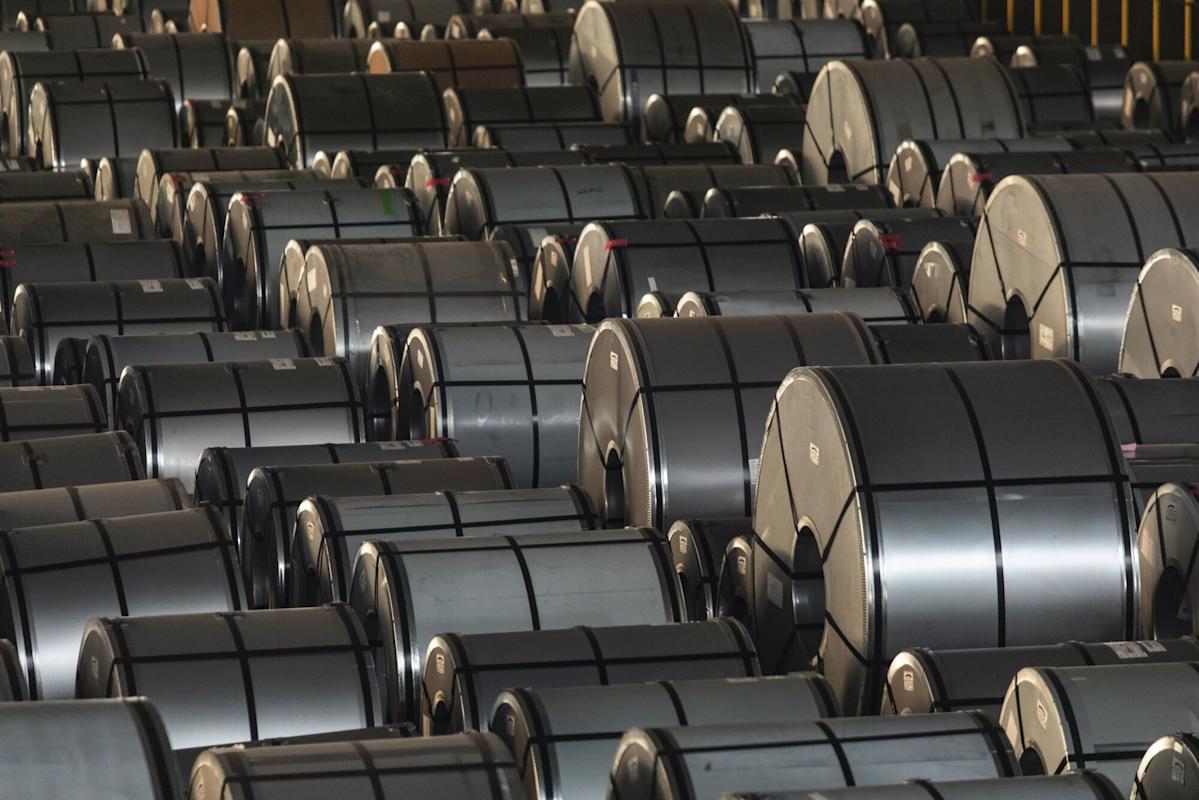(Bloomberg) — Canada will add new tariffs to a list of steel products, including many US-made items, as Prime Minister Mark Carney seeks to protect an industry badly hurt by the trade war and a flood of cheap Chinese metal.
Carney announced the new 25% levy on steel derivative products Wednesday as part of a suite of measures to help producers. The tariff will apply starting Dec. 26 to about C$10 billion ($7.1 billion) of imported products including wind towers, prefabricated buildings, fasteners and wires.
Most Read from Bloomberg
About 40% of the items on the list are typically brought in from the US, a Canadian government official said in a background briefing.
It marks the first time Carney has added new import taxes to US products since he dropped most of Canada’s retaliatory tariffs in September. A broad 25% tariff on US steel and aluminum remains, and the prime minister has resisted calls to match US President Donald Trump’s 50% levy on those metals.
“This is an encouraging leap forwards. We’ve been advocating for a lot of these things for many months,” said Keanin Loomis, head of the Canadian Institute of Steel Construction. “The Prime Minister has a much firmer grasp on this file than he did a few months ago.”
Carney has struck a conciliatory tone with Trump for months in an effort to reach a deal to lower US tariffs on key sectors. But Trump called off the talks on Oct. 23 after he was angered by an Ontario government anti-tariff ad, and it appears unlikely the negotiations will resume anytime soon.
The prime minister also said he would extend a timeline — for the final time — for companies to apply for tariff relief on steel they import from the US to use in manufacturing, food packaging and agriculture. After Jan. 31, firms will no longer be able to seek so-called “tariff remission” for those uses.
At a news conference, Carney said the moves were not intended to put pressure on the Trump administration. “It’s not targeted at the US,” he said. “It’s a global approach, which is creating some space for Canadian steel producers to fill it.”
Washington-Bound
The prime minister confirmed he plans to travel to Washington on Dec. 5 for the 2026 World Cup draw, which will put him in the same room as Trump for the first time in about a month. Carney also said he spoke with the president on Tuesday, though he added the exchange was “not newsworthy.”
Story Continues
Trade talks with the US have not resumed, he said, while Canada stands “ready to re-engage.”
Carney also announced plans to lower the tariff-rate quota level for steel imports from countries with which Canada doesn’t have a trade agreement. Tariffs will now kick in when shipments from those nations hit 20% of last year’s levels — down from 50%.
For countries that do have trade agreements with Canada, such as South Korea, the government will start applying tariffs when shipments hit 75% of 2024 levels. Previously, that was 100%. But that particular rule doesn’t apply to the US and Mexico.
Lumber Aid
As well, the government will add C$500 million to a loan program administered by the Business Development Bank of Canada to help companies in the softwood lumber business. It will also earmark C$500 million under the Large Enterprise Tariff Loan facility to support firms in the sector.
In an effort to boost domestic sales in both industries, the government will provide funds to Canadian National Railway Co. and Canadian Pacific Kansas City Ltd. so they can offer a 50% discount on shipments of steel and lumber within Canada.
Carney also plans to top up a program that provides benefits to employees who agree with their employers to work reduced hours, due to a decrease in business activity. The government will earmark more than C$100 million over two years to help up to 26,000 workers in various sectors.
In addition, the prime minister pledged to implement his government’s Buy Canada policy later this year, requiring that all defense and construction contracts worth more than C$25 million prioritize Canadian materials, including steel and lumber. It will also apply across federal grants and contribution programs.
He also promised a task force to examine how the forest industry can maintain its competitiveness over the long-term.
A worker moves a pallet of steel cans at a manufacturing facility in Quebec.Photographer: Graham Hughes/Bloomberg
Canadian steel companies that export to the US market have been crushed by the Trump administration’s 50% tariff on an array of foreign-made steel and aluminum products. The Canadian and Ontario governments recently extended an emergency loan to Algoma Steel Group Inc., an Ontario producer that’s highly exposed to the problem.
The main steel industry group in Canada has been asking for the government to erect a higher tariff wall, to prevent foreign steel producers that no longer have easy access to the US from simply dumping the metal into the Canadian market.
–With assistance from Mario Baker Ramirez, Ilya Banares, Jacob Lorinc and Melissa Shin.
(Adds details, quotes from news conference and industry reaction, starting in the second paragraph.)
Most Read from Bloomberg Businessweek
©2025 Bloomberg L.P.

